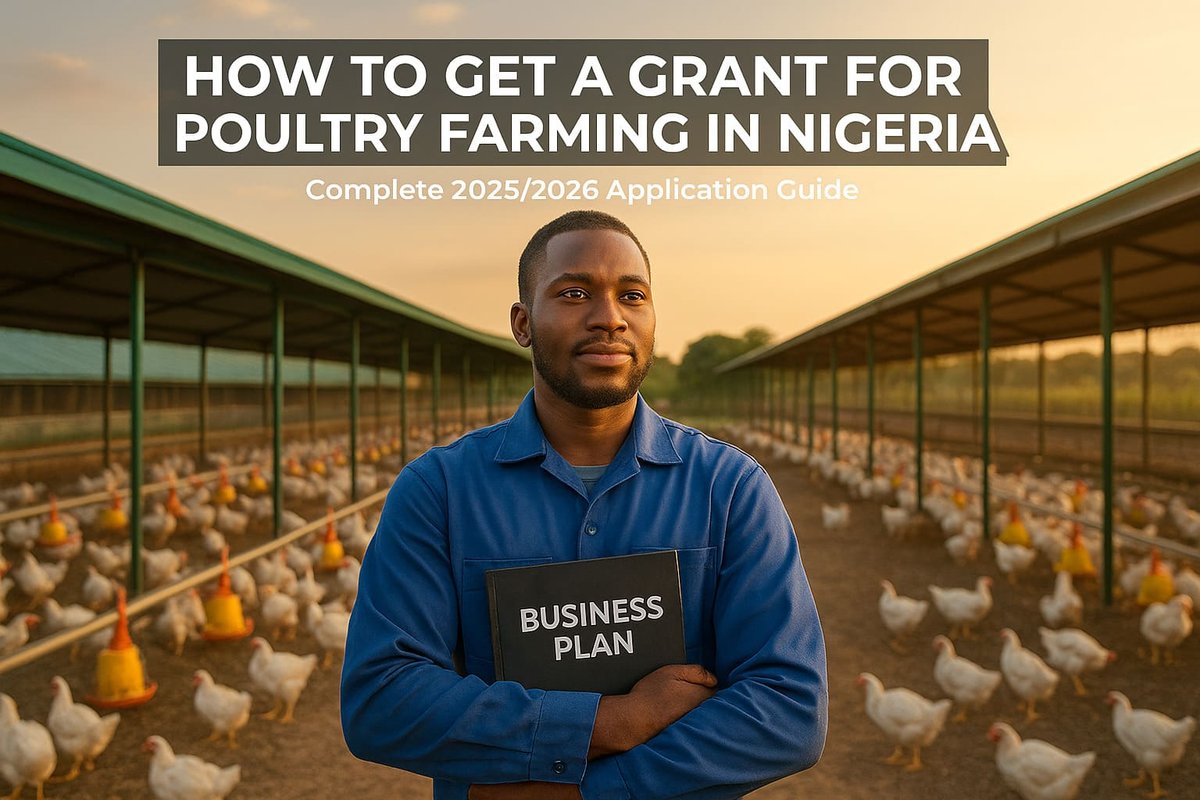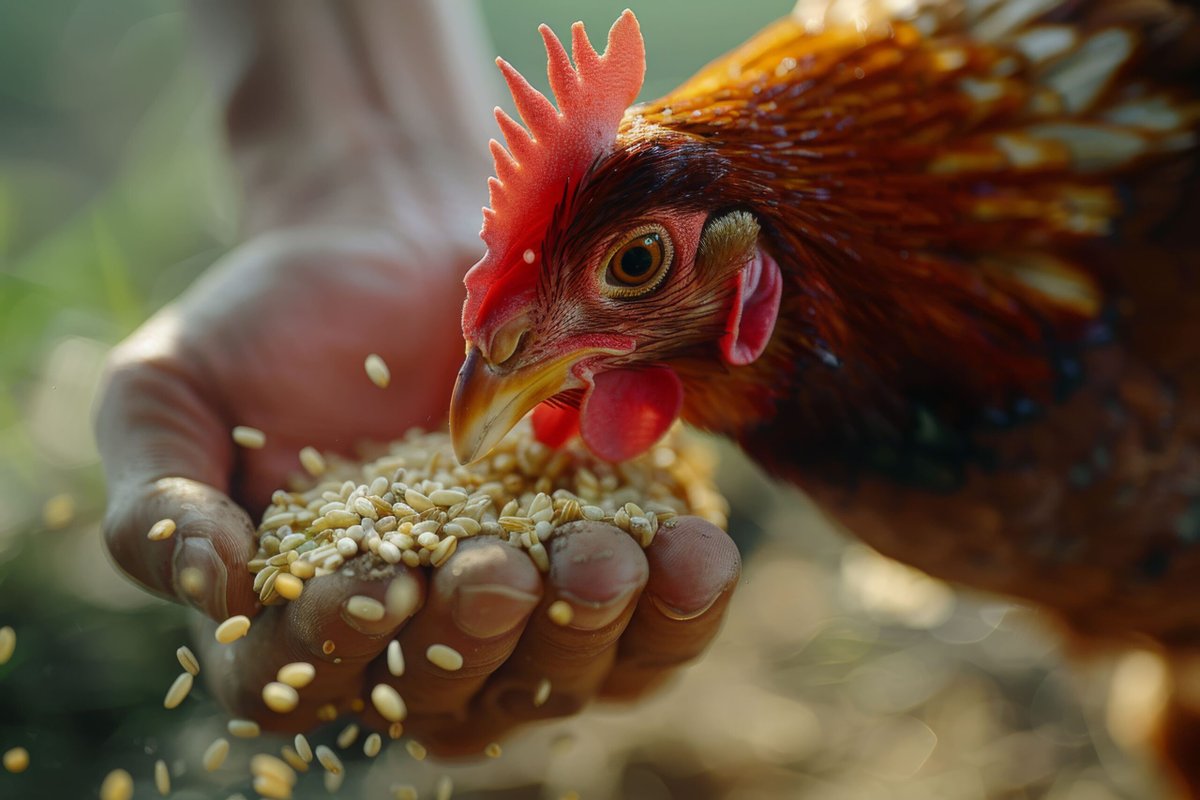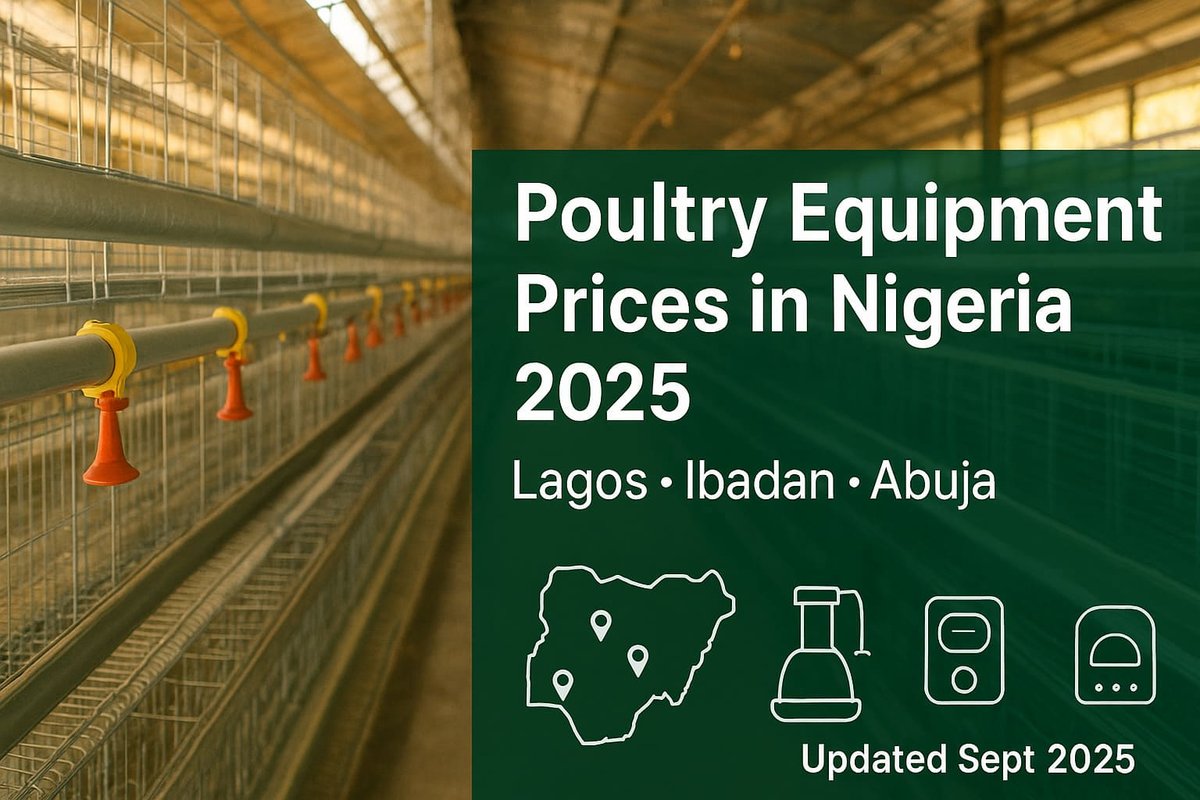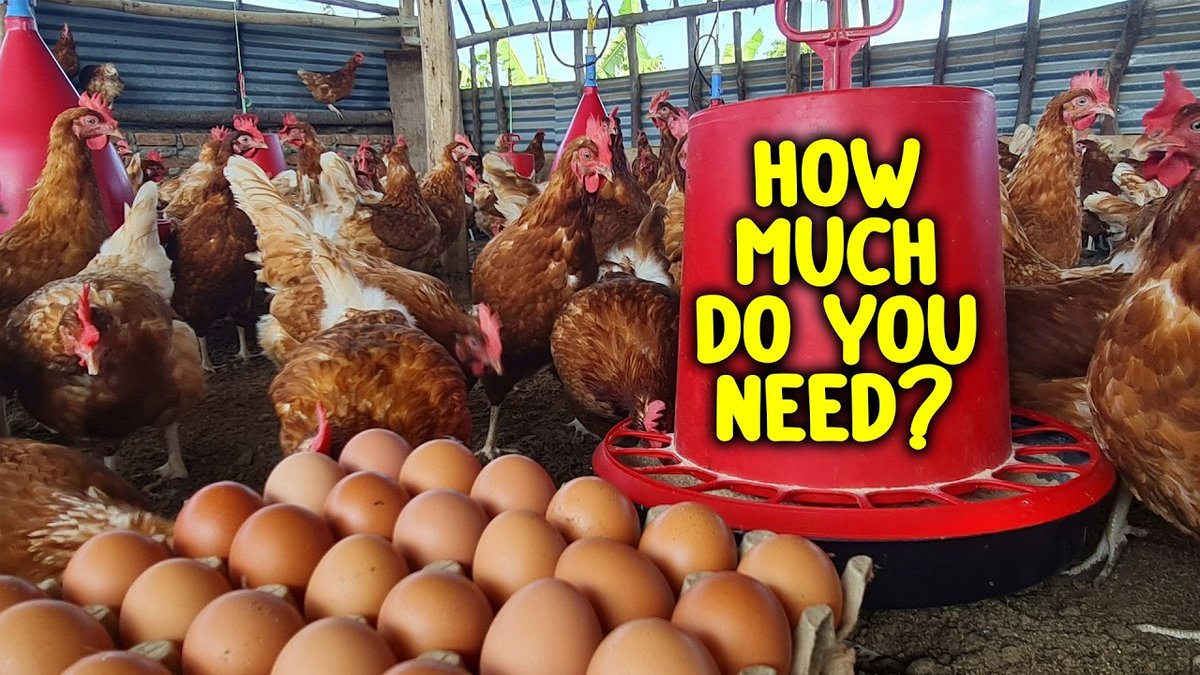Starting a poultry farm in Nigeria is a very smart business idea and can be a profitable poultry business in Nigeria. People will always need to eat chicken and eggs. In fact, Nigeria’s demand for poultry is far higher than its local production, creating a massive opportunity. But let’s be honest, the startup costs are high. These startup costs for poultry farming in Nigeria can be a major hurdle. You need money for land, building pens (a “poultry house”), buying day-old chicks, and the constantly rising cost of feed and medicine. This is where most people get stuck.
But what if you could get free money to start or grow your farm? That is what a grant is. This is not a loan. You do not have to pay it back. Getting a grant for poultry farming in Nigeria can be the key to starting your dream business without the weight of debt.
Based on insights from successful grant recipients and agricultural officers, the application process is a marathon, not a sprint. Many farmers I have spoken with feel overwhelmed. They don’t know where to look, what documents matter most, or how to make their application stand out. This guide is here to change that. We will break down everything, step-by-step, in simple words.
As of late 2025, the Nigerian government and many private groups are pushing hard for “food security.” This is a big phrase that simply means they want Nigeria to be able to feed itself. Because of this, there are many agricultural grants in Nigeria 2025 available for serious farmers. Many people are searching for free agricultural grants Nigeria November 2025, and this guide lists them.
In this complete guide, you will learn:
- What grants really are (and the difference between cash and equipment grants).
- Who can apply for these grants (the full eligibility checklist).
- The exact documents you need to prepare before you even hear of a grant.
- A list of the top grants for poultry farmers in Nigeria, including federal, state, and private funds.
- A step-by-step guide on how to apply for agricultural grants in Nigeria online (and avoid common portal mistakes).
- How to write a business plan that wins.
- Why most applications get rejected (and how to avoid those mistakes).
- You won the grant! What to do after the money lands in your account.
📋 Before You Apply: 30-Day Preparation Checklist
Want to be ready for the next big grant? Start this 30-day checklist today.
- Week 1: Register your business with the CAC (Corporate Affairs Commission). This can take 7-14 days, so start now.
- Week 2: Use your CAC document to open a business bank account and get your TIN (Tax Identification Number).
- Week 3: Draft your poultry farming business plan. Look for free templates from SMEDAN (Small and Medium Enterprises Development Agency of Nigeria) or ask your bank.
- Week 4: Gather all your documents (ID, BVN, business plan, land agreement). Scan them into PDF files and save them in a special “Grant Application” folder on your computer or phone.
- Ongoing: Subscribe to grant notification websites (like
smedan.gov.ng, the FMAFS portalfmard.gov.ng, andtefconnect.com) so you hear about new opportunities first.
Disclaimer: This guide provides information, not a guarantee. Grants are competitive. Always check the official websites for the final deadlines and rules. Scammers are everywhere; official grants will NEVER ask you to pay an “application fee” in a personal bank account. Last verified: November 9, 2025.
Critical Disclaimers for All Applicants
- Important Timing Note: Grant programs operate on cycles that change annually. The deadlines and availability listed in this guide reflect November 2025 status. Programs may close, reopen, or modify requirements. Always verify the current status on the official website before applying.
- Cooperative Advantage: Many grant programs, particularly CBN-backed initiatives, require or strongly prefer applications from registered farmer cooperatives rather than individuals. Consider joining the Poultry Association of Nigeria (PAN) or a local cooperative to improve your chances.
- Regional Variation Disclaimer: This guide focuses on federal programs accessible nationwide. However, your state likely has additional agricultural grants. Contact your State Ministry of Agriculture or visit your state government website for local opportunities.
SCAM ALERT: Official Grants Are 100% Free
Before you go any further, know this: You never have to pay money to apply for a real grant.
Scammers create fake websites and WhatsApp groups to steal money from hopeful farmers. They will ask for a ₦10,000 “application fee” or “processing fee.” This is a 100% scam.
Here is what the official programs say:
- The Tony Elumelu Foundation (TEF): “The Tony Elumelu Foundation Entrepreneurship Programme application is online, and it is FREE! TEF has NOT appointed anyone to act on her behalf.”
- The Nigeria Youth Futures Fund (NYFF): “The application is free of charge, the applicant should not give any amount to anyone for the application process. NYFF has zero tolerance for corruption.”
- The NAMP (BOA/Heifer) Program: “Application is FREE! There are no registration fees, processing charges, or hidden costs.”
If anyone asks you to pay money to “help you apply” or “process your form,” they are a thief. Report them.
Quick View: Active Grant Programs (November 2025 – Q1 2026)
Here is a summary of major programs. This table is your best guide to free agricultural grants Nigeria November 2025 and beyond. More details on each are in the guide below.
| Program | Funding Amount | Eligibility | Application Link | Status / Deadline |
|---|---|---|---|---|
| National Smallholder Farmers Fund | Up to $1B (₦1.5T) total pool | Smallholder farmers, cooperatives | boanig.com | Rollout expected Q1 2026 |
| NADF | ₦50M (loans/grants at 9%) | Registered agribusinesses | nadf.gov.ng | Rolling quarterly |
| ACGSF | 75% loan coverage (up to ₦2B) | Farmers with bankable projects | cbn.gov.ng | Year-round (via banks) |
| YEIDEP | ₦300K – ₦1M+ | Youth 18-35 | yeidep.org | Ongoing phases |
| NAMP (BOA/Heifer) | Tractor lease-to-own | Youth 18-35, women, companies | boanig.com/namp | ❌ CLOSED Nov 7, 2025 |
| TEF Programme | $5,000 seed capital | African entrepreneurs | tefconnect.com | Opens Jan 1, 2026 (deadline TBA, ~Feb 2026) |
| NYFF | $1,000 – $10,000 | Youth changemakers 18-35 | leapafrica.smapply.io | Check for 2025/26 cycle |
| Mastercard Fund | ₦500K – ₦2.5M | Agribusiness SMEs | frp.org/challenge-fund | Rolling 2025 |
| F4F Grant | Up to ₦2M + mentorship | Young agricultural entrepreneurs | afchub.org | Open |
| FAFIN | ₦500M – ₦5B | Commercial agro-processors | nsia.com.ng | Q1 2026 expected |
| ADP (FMAFS) | ₦5M – ₦20M | Rural cooperatives/smallholders | fmard.gov.ng | Contact state office |
| NG-CARES | ₦100K – ₦500K | Farmers in participating states | ng-cares.gov.ng | Via state ministries |
*2026 dates are based on historical patterns and not yet officially announced.
Understanding Agricultural Grants in Nigeria
Before you start applying, you need to know exactly what you are looking for. Many people in Nigeria use the word “grant” to mean any kind of government money. This is a big mistake that can cost you.
What Are Agricultural Grants?
An agricultural grant is a gift of money (or items) given to a farmer or a farming business to help achieve a specific goal. This goal could be to start a new poultry farm, buy new equipment (like drinkers, feeders, or an incubator), or expand to include a hatchery or feed mill.
The best part? It is non-refundable agricultural funding. You do not pay it back. This is why free grants for agricultural startups in Nigeria are so popular and so competitive.
In-Kind Grants vs. Cash Grants: What’s the Difference?
This is a very important point many people miss. Not all grants are cash.
- Cash Grants: This is when money is sent to your business bank account. You then use that money to do what your proposal said (e.g., build pens, buy feed). The Tony Elumelu Foundation (TEF) grant is a good example of a cash grant.
- In-Kind Grants: This is when you are given items instead of money. For example, a grant from NALDA (National Agricultural Land Development Authority) might give you 1,000 day-old chicks, 50 bags of feed, and 20 drinkers. You don’t get the cash, but you get the things you need.
Both are valuable, but you must know what you are applying for.
Grants vs. Loans: Why Grants are the Gold Standard
This is the most important difference to understand.
- Grants:
- Free Money: You do not pay it back.
- No Interest: There is no “interest” adding to the cost.
- No Collateral: You usually do not need to own a house or land to get a grant. This is the main form of agricultural financing without collateral Nigeria.
- How to get it: You “win” it by having a great application and a business plan that solves a problem.
- Loans:
- Borrowed Money: You MUST pay it back.
- With Interest: You pay back more than you borrowed.
- Collateral: Most bank loans (like from the Bank of Agriculture) require collateral. If you fail to pay, the bank can take your property.
- How to get it: You “qualify” for it by showing you have the ability to pay it back.
For a new poultry farmer, a grant is the gold standard. It lets you start your business without the stress of debt. For more details on loan options if grants don’t work out, read our complete guide on how to get loans for poultry farming.
Types of Agricultural Grants Available
Grants come from different places, and they have different goals:
- Federal Government Grants: From agencies like the Federal Ministry of Agriculture and Food Security (FMAFS) (formerly known as FMARD; restructured under the Renewed Hope Agenda) or the Central Bank of Nigeria (CBN). These focus on national-level goals, like food security and job creation.
- State Government Grants: Many states, like Lagos, Kano, or Anambra, have their own programs. These focus on creating jobs and developing the economy in that state.
- Private/Foundation Grants: From companies or non-profits like the Mastercard Foundation or the Tony Elumelu Foundation. They want to support entrepreneurs and a specific mission (like youth or women’s empowerment).
- International Grants: From global groups like the African Development Bank (AfDB), USAID, or the World Bank Group. These are often large projects that partner with the Nigerian government, like the World Bank Group’s APPEALS Project.
Current State of Agricultural Funding in Nigeria 2025
The news is good. The government knows that agriculture, especially poultry farming, can create thousands of jobs and help the economy. Programs from the Bank of Agriculture (BOA) and NALDA are focused on empowering young farmers.
Furthermore, programs like the World Bank Group-assisted NG-CARES (Nigeria COVID-19 Action Recovery and Economic Stimulus) are being given out through state governments to help farmers recover and grow. They are looking for serious people. They want to give money to farmers who will actually use it to produce food and create jobs. This is your chance.
This is a lot to take in, but understanding these basics is the first step. Now that you know what a grant is, let’s find out if you are the who—the person they are looking to fund.
Recent Policy Developments Affecting Grants (2025)
The Renewed Hope Agenda has restructured agricultural financing in Nigeria. You must understand these changes to know where to look for money.
NADF Replaces Previous CBN Programs
As of 2024-2025, the National Agricultural Development Fund (NADF) has taken over many agricultural financing functions previously handled by CBN. It offers loans at single-digit interest (9%) for fertilizers and value chain enhancement. The fund is investing ₦100 billion into agriculture.
Youth Focus Intensified
Federal and state programs now allocate over ₦1 trillion in 2025 to address Nigeria’s ₦5 trillion SME funding gap, with a specific emphasis on youth (18-35) and women-led agricultural businesses.
Cooperative Emphasis
Programs increasingly require or prefer cooperative/group applications rather than individual farmers. This reflects a shift toward aggregated farming models, which are easier to fund and manage.
Federal-State Partnership Model
The NG-CARES program demonstrates the new partnership approach where federal funding is administered through state governments. This requires applicants to engage with both federal and state agricultural ministries.
Eligibility Requirements for Poultry Farming Grants
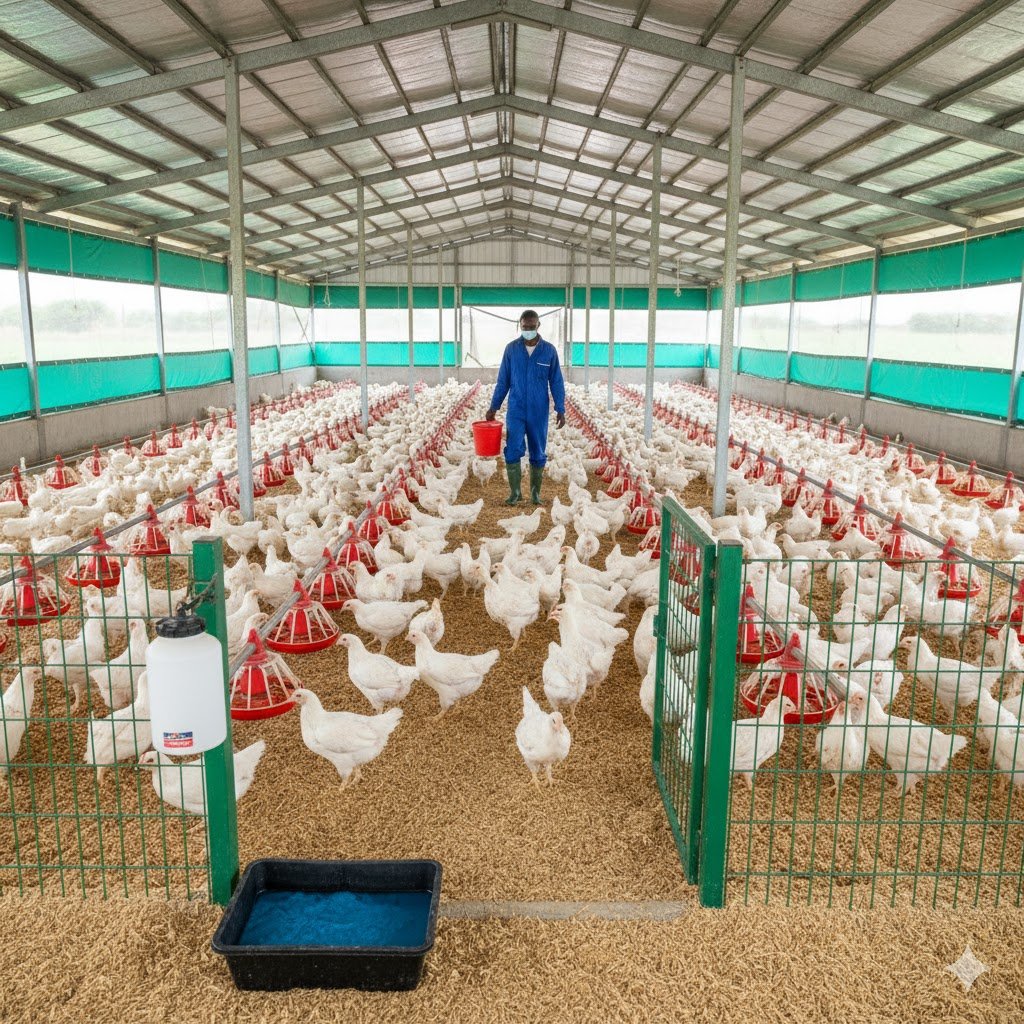
You cannot just raise your hand and get a grant. You must prove you are ready, serious, and a good “investment” for their funds. Each grant has its own rules, but here are the most common requirements.
Age Requirements
Many popular grants are for “youth,” which in Nigeria usually means you must be between 18 and 35 years old. The Nigeria Youth Futures Fund (NYFF) is a clear example. These are key youth agricultural empowerment grants Nigeria.
Important Note: Youth age limits can vary. While most Nigerian federal programs (like NAMP) define youth as 18-35, some programs may extend this to 40 years. Always check the specific program’s requirements.
Business Registration Requirements
This is a non-negotiable “big one.” You cannot get a serious business grant with your personal name or a personal bank account. Applying with a personal account is the fastest way to get your application thrown in the trash.
- You MUST register your business name with the Corporate Affairs Commission (CAC). This is the first step to proving you are a serious entrepreneur. It is not expensive, and you can start the process online.
- You will also need a Tax Identification Number (TIN) for your business, which is free.
- You must have a business bank account in your registered business name, not your personal name.
The “Big Three” Documents: CAC, TIN, and Business Bank Account
Think of these three as your “passport” to funding. Without them, you are not even allowed to travel. Get these three things sorted out today, long before you even find a grant to apply for.
Your “Degree” in Farming: The Business Plan
Good news: You do not need a university B.Sc. in Agriculture to get a farming grant. What you do need is a comprehensive poultry farming business plan. This document is your degree. It is more important than any certificate. It shows the grant committee that you have a plan to be successful, that you understand your costs, and that you know how to make a profit.
Farm Location Requirements
- You must be a Nigerian citizen living in Nigeria.
- Your farm must be located in Nigeria.
- Some grants are specific to certain states or regions (like the Niger Delta) or even local governments. You must read the rules.
- You must have proof of your right to use the land. This can be a Certificate of Occupancy (C of O), a lease agreement, or a letter from the local traditional ruler (Oba, Emir, Obi) giving you permission. Understanding different poultry housing systems in Nigeria will also help you justify your location and budget.
Scale of Operation Considerations
Are you starting small (small-scale poultry farming with 500 birds) or big (commercial poultry farming with 10,000 birds)? You must be clear.
Broilers, Layers, or Hatchery? Why You Must Choose
Do not just say “I want to do poultry farming.” It’s too vague. Learn more about choosing between broilers, layers, or noilers for your specific situation. A plan for raising broilers (for meat) is very different from a plan for layer farming (for eggs). A h hatchery (for producing day-old chicks) is different again. Grantors fund focused plans. Be specific.
Common Disqualifiers to Avoid
Why do people fail to get grants?
- Incomplete Application: They miss a question or forget a document.
- No CAC Registration: They apply with their personal name.
- Bad Business Plan: The plan is not clear, the numbers don’t add up, or it looks like a copy-and-paste job.
- Missed Deadline: They apply late. Always apply early.
- Wrong Grant: They apply for a grant they are not eligible for (e.g., a 40-year-old applying for a youth grant, or a man applying for a women-only grant).
Meeting these requirements is the barrier to entry. If you have all these things, you are in the top 20% of applicants. Next, we’ll cover how to get all your documents in order.
How to Prepare for Grant Applications
Success loves preparation. The winners of 2026 grants are the people who started preparing in 2025. Do not wait until a grant is announced (with a 2-week deadline!) to start gathering your things. You should have these ready today.

Essential Documents Needed: Your “Go-Bag” for Funding
Think of this as your “go-bag” for funding. Put all these in a safe folder, both as paper copies and as scanned PDF files on your computer. When a grant opens, you will be ready to apply in hours, not weeks.
| Document | Why You Need It | Actionable Tip |
|---|---|---|
| Business Name Certificate | Corporate Affairs Commission (CAC) | This is your business’s “birth certificate.” It’s non-negotiable. |
| Business Bank Account Info | In your business name | Get a statement from your bank showing your business name and account number. |
| Tax Identification Number (TIN) | For your business | You get this from the FIRS (Federal Inland Revenue Service). It’s free. |
| Your Business Plan | Your “map” to success | We will cover this in detail in the next section. Have it as a PDF. |
| Proof of Land Use | Lease agreement, C of O, etc. | Must show you have the legal right to use the land for farming. |
| Valid ID Card | NIN Slip, Driver’s License, Passport | Your personal identification. |
| Bank Verification Number (BVN) | Your personal BVN | This is used to verify your identity. |
| Clear Photos of Your Farm | (If you have an existing farm) | Take photos of your pens, birds, and land. Be honest. |
| A Short “About Me” Bio | (100-200 words) | A short summary of who you are and your experience in poultry. |
Creating a Compelling Poultry Farming Business Plan

Your business plan is your most important sales tool. It tells the grant committee everything. It should be clean, clear, and easy to read.
It must tell them:
- Who you are: Your experience and your team.
- What the problem is: “Nigeria needs more affordable protein (eggs and chicken).”
- What your solution is: “My 2,000-bird broiler farm in Ogun State.”
- How you will do it: Your plan for production (including the best seasons to raise broilers), marketing (who will you sell to?), and sales.
- How you keep birds safe: Your proposal should include a poultry farm biosecurity plan to show grantors you understand disease prevention.
- How you manage risk: Show you understand quality control, including identifying poor-quality chicks that could ruin your investment.
- What the money is for: A clear list of poultry farm startup costs.
- How you will make profit: Your financial projections. Show them how the farm will make money.
The “Heart” of Your Plan: Your Financial Projections
This is where many people fail. You must be detailed and realistic. To be precise in your budget, check current poultry equipment prices in Nigeria before filling in your financial projections. As of 2025, typical startup costs for a 500-bird broiler operation range from ₦2-5 million. This includes:
- Land Preparation: ₦500,000 – ₦2,000,000 (if you don’t already have land)
- Housing Construction: ₦700,000 – ₦1,500,000
- Initial Stock: ₦750,000 – ₦1,200,000 (for 500 chicks)
- Initial Feed & Vaccines: ₦500,000+
Feed costs represent the largest ongoing expense. Your budget must be based on these real-world prices.
- Startup Costs: This is one-time money to start. (e.g., “Building poultry house – ₦1,500,000,” “Water system (borehole) – ₦800,000”).
- Operating Costs: This is money to run the farm. (e.g., “Cost of 500 chicks – ₦1,000,000,” “Cost of feed for 8 weeks – ₦1,200,000”).
Be precise. “I need ₦1,200,000 for feed” is weak. “I need ₦1,200,000 to buy 200 bags of Brand X Grower Mash at ₦6,000 per bag” is strong.
Farm Site Assessment Requirements
Some grants will send someone to visit your farm location before they give you money. Be honest about your location.
- Have your land documents ready to show them.
- Take clear photos (with GPS location if you can) and put them in your business plan appendix.
- Make sure you can actually get to the land. If it’s in a swamp, you have a problem.
Getting these documents ready is half the battle. Once you have your “go-bag,” you are ready to hunt for opportunities. Let’s look at where to find them.
Real Farmers, Real Grants: 2024/2025 Success Stories
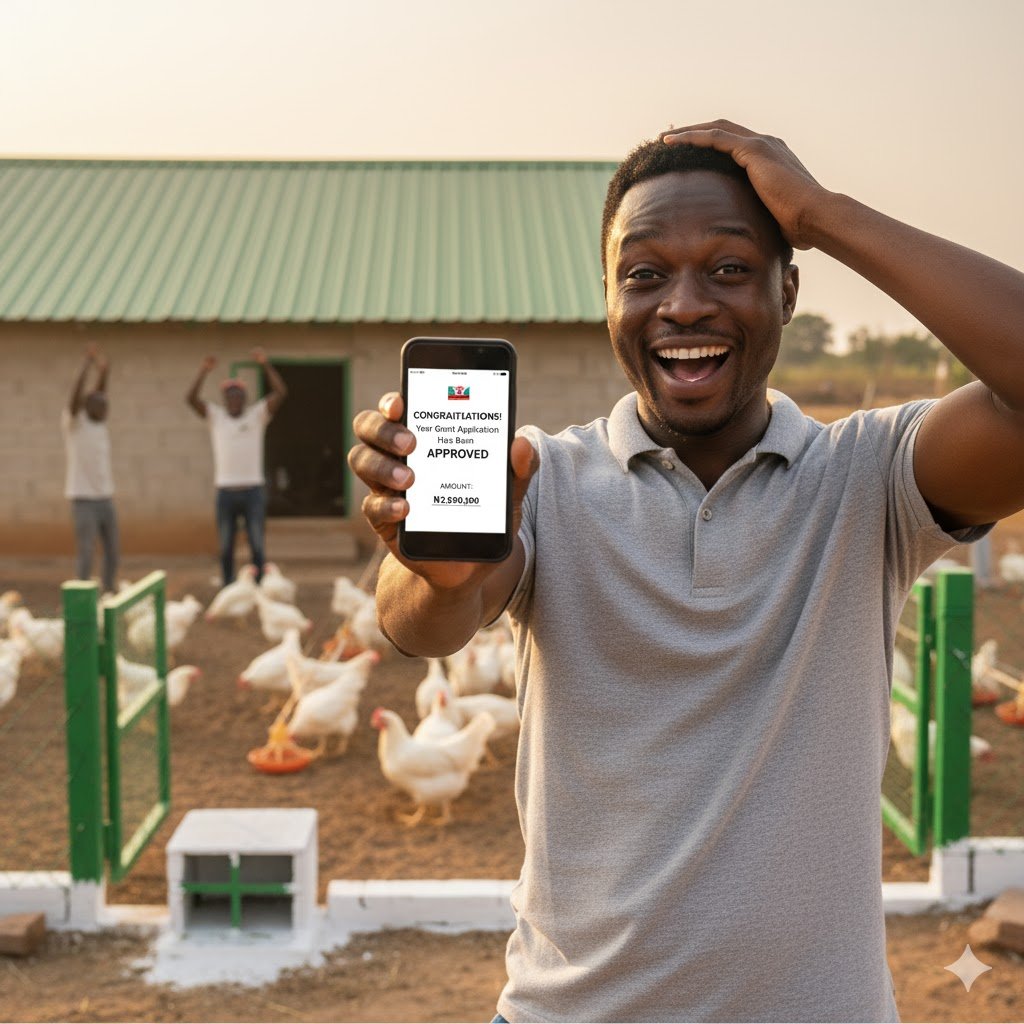
These programs are real and are changing lives. Seeing success stories adds credibility and shows you what is possible.
- Fatima Bello and 12,422 FCT farmers: Each received ₦200,000 under the NG-CARES program to revive their poultry operations during the economic recovery.
- Amina Yusuf, 32, Oyo State: Received a ₦350,000 YEIDEP grant to launch a cassava-processing unit. She now employs 20 women.
- Ibrahim Musa, Kaduna: Scaled his rice farm through NADF funding, doubling production to 50 tons annually. “The grant turned my plot into a powerhouse,” he stated.
Top Grant Opportunities for Poultry Farmers in Nigeria (2025-2026)
Here is a list of popular and real grant programs. Before choosing, understand the broiler versus layer profitability to match your goals with the right program. Some are yearly, some are one-offs. The key is to check their official websites constantly.
A. Federal Government & World Bank-Assisted Programs
These are often the largest but also the most competitive.
1. The National Smallholder Farmers Fund (BOA/Afreximbank Partnership) ⏰ OPENING SOON
- Overview: Announced in September 2025, this is a landmark $1 billion fund (approximately ₦1.5 trillion) designed to close the financial gap for Nigeria’s smallholder farmers.
- What it offers: Direct financial support for smallholder farmers, access to affordable credit for inputs, and structured market linkages. It will be a revolving matching fund with State Governments.
- Who can apply: Smallholder poultry farmers, individual farmers, and cooperatives seeking capital for inputs, equipment, and market access.
- How to access: Applications will be processed through the Bank of Agriculture (BOA) and state government partners.
- Why it matters: This is Nigeria’s largest-ever commitment to smallholder farmer financing and is expected to be the most accessible funding source in 2026.
Program Verification:
- Information last verified: November 9, 2025
- Source: Bank of Agriculture and Afreximbank joint announcement (Sept 16, 2025).
- Status: ⏰ OPENING SOON (Expected rollout Q1 2026)
- Contact: Visit boanig.com or your State Ministry of Agriculture for rollout updates.
2. Federal Government Agricultural Grant (NG-CARES & ADPs) ✅ ACTIVE
- Overview: This is an umbrella term. The most common program is the NG-CARES (Nigeria COVID-19 Action Recovery and Economic Stimulus), a World Bank-assisted program.
- What it offers: Funding often between ₦100,000–₦500,000 per farmer, delivered through your state. Also, watch for programs from your state’s Agricultural Development Programme (ADP).
- Who can apply: Farmers in participating states.
- How to access: Ask your state’s Ministry of Agriculture about the “NG-CARES Result Area 2” for farmers.
Program Verification:
- Information last verified: November 9, 2025
- Source: NG-CARES official portal (ng-cares.gov.ng) and FMAFS (fmard.gov.ng).
- Status: ✅ ACTIVE (Administered by state governments on an ongoing basis).
- Contact: Visit your State Ministry of Agriculture office or
info@ngcares.gov.ng.
3. NALDA Agricultural Empowerment Programme ⚠️ UNVERIFIED
- Overview: The National Agricultural Land Development Authority (NALDA) often gives in-kind grants (like chicks, feed, and pens) to young farmers.
- Program: Look for their “Young Farmers Scheme” and “Integrated Farm Estates.”
- Note: As of November 2025, the NALDA website (nalda.gov.ng) has experienced technical difficulties.
Program Verification:
- Information last verified: November 9, 2025
- Source: FMAFS (fmard.gov.ng).
- Status: ⚠️ UNVERIFIED (Website is down. Contact state ministry).
- Contact: Your State Ministry of Agriculture is the best contact point.
4. Bank of Agriculture (BOA) Youth Entrepreneurship Support (YEIDEP) ✅ ACTIVE
- Overview: The Bank of Agriculture (BOA) partners for many grant programs, such as the Youth Employment in Agriculture and Digital Economy Initiative (YEIDEP).
- What it offers: Funding can range from ₦300,000 to ₦1 million for most youth applicants. This grant is ideal for starting a profitable broiler farm.
- Who can apply: Youth (18-35) with a bankable business plan.
Program Verification:
- Information last verified: November 9, 2025
- Source: YEIDEP official portal (yeidep.org).
- Status: ✅ ACTIVE (Applications are processed in ongoing phases).
- Contact:
info@yeidep.orgor+2348133977651.
5. CBN Agricultural Credit Guarantee Scheme Fund (ACGSF) 🔄 ROLLING
- Overview: This is not a direct grant. It is a loan guarantee from the Central Bank of Nigeria (CBN).
- What it offers: The ACGSF guarantees 75% of a loan (up to ₦2 billion) from a commercial bank, which often eliminates the need for collateral.
- How to access: You apply for this through your bank (e.g., First Bank, Zenith Bank) when you are applying for an agricultural loan.
Program Verification:
- Information last verified: November 9, 2025
- Source: Official CBN ACGSF portal.
- Status: 🔄 ROLLING (Available year-round through participating banks).
- Contact: Speak to the agricultural loan desk at your commercial bank.
6. Bank of Agriculture/Heifer Nigeria (NAMP) ❌ CLOSED
- Overview: This program provides tractors and mechanization equipment on a lease-to-own basis.
- UPDATE: The NAMP November 2025 cycle closed on November 7, 2025. This program typically runs in cycles. Monitor
boanig.com/nampfor the next intake announcement, likely in Q1 or Q2 2026.
Program Verification:
- Information last verified: November 9, 2025
- Source: NAMP application portal (boanig.com/namp).
- Status: ❌ CLOSED (Watch for 2026 cycle).
- Contact: Use the contact information on the application portal (when active).
7. Fund for Agricultural Finance in Nigeria (FAFIN) ⏰ OPENING SOON
- Overview: A large fund managed by the NSIA for established, commercially viable farms, not startups.
- Funding: Large investments between ₦500 million and ₦5 billion.
- Who can apply: Large, profitable farms and food processing companies. This is for scaling up. A strong understanding of layer farming business fundamentals is key.
Program Verification:
- Information last verified: November 9, 2025
- Source: FAFIN portfolio page on the NSIA website.
- Status: ⏰ OPENING SOON (Next call expected Q1 2026).
- Contact: Visit
nsia.com.ngfor official contact details.
8. National Agricultural Development Fund (NADF) 🔄 ROLLING
- Overview: This fund offers mixed funding—some grants, and some low-interest loans at 9% interest.
- Funding: Up to ₦50 million.
- How to access: You apply by submitting a proposal to
nadf.gov.ng. They typically have quarterly proposal submissions.
Program Verification:
- Information last verified: November 9, 2025
- Source: National Agricultural Development Fund portal (nadf.gov.ng).
- Status: 🔄 ROLLING (Accepting proposals quarterly).
- Contact: Visit
nadf.gov.ngfor official contact details.
B. Major Private & International Foundations
These are often merit-based and have very clear online applications.
9. Tony Elumelu Foundation (TEF) Entrepreneurship Programme ⏰ OPENING SOON
- Overview: The most famous grant in Africa. Many poultry farmers win it every year.
- Funding: $5,000 in seed capital (non-refundable cash grant) and business training.
- Application: The 2026 application cycle is expected to open on January 1, 2026.
Program Verification:
- Information last verified: November 9, 2025
- Source: The Tony Elumelu Foundation (tefconnect.com).
- Status: ⏰ OPENING SOON (Opens January 1, 2026).
- Contact: Use the support/help section on
tefconnect.com.
10. The Mastercard Foundation Agribusiness Challenge Fund 🔄 ROLLING
- Overview: A major fund focused on supporting businesses in the agricultural value chain.
- Tip: They love “agribusiness,” not just farming. Show how you will be part of the agricultural value chain (e.g., processing chicken, selling eggs, feed production).
- Application: This program often runs through partners.
Program Verification:
- Information last verified: November 9, 2025
- Source: Mastercard Foundation Fund for Resilience and Prosperity (
frp.org/challenge-fund). - Status: 🔄 ROLLING (Different challenges open at different times).
- Contact: Check partner websites like
frp.org/challenge-fund.
11. The Songhai/Mastercard Foundation Program ⚠️ UNVERIFIED
- Overview: A partnership offering intensive hands-on training and support at the Songhai Initiative centers.
- What it offers: This is an “in-kind” program focused on practical skills, not just cash.
- Application: You must watch for announcements from the Songhai Initiative.
Program Verification:
- Information last verified: November 9, 2025
- Source: Songhai Initiative website.
- Status: ⚠️ UNVERIFIED (Runs in cohorts; check website for next cohort announcement).
- Contact:
+229 01 60 93 33 34(Songhai HQ).
12. Farmers for the Future (F4F) Grant ✅ ACTIVE
- Overview: A grant from the Africa-For-Africa (AFA) hub, sponsored by BATN Foundation, for young “agri-preneurs.”
- Funding: Up to ₦2 million plus business mentorship.
- Application: Check their official portal.
Program Verification:
- Information last verified: November 9, 2025
- Source: F4F official portal (
f4f.wealthishere.org). - Status: ✅ ACTIVE (Check portal for current cycle deadline).
- Contact: Visit
f4f.wealthishere.org.
13. Nigeria Youth Futures Fund (NYFF) ❌ CLOSED
- Overview: A program supported by the Ford Foundation to empower young Nigerian “changemakers.”
- Application: The 2024/2025 NYFF cycle ends in November 2025.
Program Verification:
- Information last verified: November 9, 2025
- Source: LEAP Africa NYFF application portal.
- Status: ❌ CLOSED (Check for the 2026 cycle announcement).
- Contact: Visit
nigeriayouthfund.orgor the application portal.
14. USAID Nigeria “Feed the Future” Initiative ⚠️ UNVERIFIED
- Overview: The US government’s global food security initiative.
- Tip: USAID often gives large grants to organizations (NGOs, cooperatives) that then help farmers. Joining a well-run poultry cooperative is the best way to benefit.
- Note: This is a large-scale initiative, not a direct application portal.
Program Verification:
- Information last verified: November 9, 2025
- Source: USAID Nigeria official website (usaid.gov/nigeria).
- Status: ⚠️ UNVERIFIED (This is an ongoing government initiative, not a direct grant application).
- Contact: Monitor the “Work With Us” section on the USAID Nigeria site.
C. State-Level Agricultural Grants (The Hidden Gems) ⚠️ UNVERIFIED
Do not forget your state! These are often less competitive. (Note: State program cycles change very quickly. Always check with your state’s Ministry of Agriculture to verify deadlines and availability.)
- 15. Lagos State Agri-preneurship Programme (L.E.A.P.): An excellent program for Lagos residents.
- Verification:
lagosagric.com/lagos-agripreneurship-programme/
- Verification:
- 16. Kano State Agro-Pastoral Development Project (KSADP): A massive project funded by the African Development Bank (AfDB).
- Verification:
ksadp.org|ksadp2018@gmail.com
- Verification:
D. Niche & Ag-Tech Opportunities ❌ CLOSED
These programs are for businesses that mix technology with farming. The 2025 cycles have passed; watch for 2026.
- GIZ-SAIS Investment Readiness Programme 2026: (2025 deadline passed).
- Yves Rocher Foundation Terre de Femmes Award 2026: (2025 deadline passed).
- AWARD Leadership Program 2025: (2025 deadline passed).
For the most current list of these niche opportunities, visit agribusinessdigest.com.ng or agropreneurng.com.
🗓️ Expected 2026 Grant Opening Dates (Updated November 9, 2025)
Based on historical patterns, here is when you should be on high alert for 2026 openings.
Confirmed/High Confidence:
- January 1, 2026: Tony Elumelu Foundation applications open (review period Jan 12-Mar 6 per official RFP).
- Q1 2026 (Jan-Mar): National Smallholder Farmers Fund rollout begins (State-by-state implementation).
- Q1 2026: FAFIN funding calls expected.
Watch These (Based on Historical Patterns):
- February-March: State-level grant announcements (Lagos L.E.A.P., others).
- Quarterly: NADF proposal submissions (every 3 months).
- June-July: AWARD Leadership Program (for women in ag sciences).
- August-September: GIZ-SAIS Investment Readiness Programme.
- Year-round: ACGSF via participating banks.
Pro Tip for 2026: The National Smallholder Farmers Fund represents a paradigm shift. Unlike previous programs with strict application windows, this revolving fund may offer rolling applications through state governments. Contact your State Ministry of Agriculture in January 2026 to understand their implementation timeline.
This list is a great place to start, but it’s not complete. The next step is knowing how to act when you find the perfect grant.
Step-by-Step Application Process

So, you have your “go-bag” of documents and you have found a grant. What next? Here is how to apply for agricultural grants in Nigeria online and avoid mistakes. This process is key for how to apply for poultry farming grants in Nigeria 2026.
How to Apply for Agricultural Grants Online: Complete Process
Step 1: Research and Select Appropriate Grants
Do not apply for every grant. Read the rules (they call it the “Request for Application” or “RFA”).
- Does this grant fit your business? (If the grant is for “cassava” and you do “poultry,” don’t apply).
- Are you eligible? (Check the age, location, and business stage).
- Action Tip: Create a “Grant Calendar” in a notebook or on your computer. Write down the grant name, the deadline, and the website link.
Step 2: Register Your Poultry Farming Business
We have said it before, but it is the most important step. If you haven’t, go to the Corporate Affairs Commission (CAC) website and register your business. This is how to register for any FG grant or private grant.
Step 3: Gather Required Documentation
Get your “go-bag” (from Section 3) ready. Scan all documents into a folder. Make sure your business plan PDF is the final, proofread version.
Step 4: Complete Online Registration
When you apply for agricultural grant 2025 online application, be careful.
- Go to the official website. Beware of fakes! Scammers create websites that look real. Official sites are usually
.gov.ng,.org, or.comfor foundations (liketonyelumelufoundation.org). - Fill in every single box. Do not leave blanks.
- Your name must match your BVN and NIN exactly. No “Tunde” if your name is “Babatunde.”
- When you apply for agricultural grant 2025 online application in Nigeria, use a good, professional email address (like
yourfarmname@gmail.com, notsexyTunde88@yahoo.com) that you check every day.
Step 5: “The Grant Portal”: Tips for Online Applications
Most applications are done on a “portal.” This is where people make mistakes.
- Do NOT use your phone. Use a good laptop or desktop computer. Phone browsers can cause errors.
- Save your progress. Most portals have a “Save Draft” button. Use it every 15 minutes.
- Type answers in a Word doc first. Type your long answers (like “Describe your business”) in a Microsoft Word document, then copy and paste them into the portal. This prevents you from losing your work if the page crashes.
- Check file sizes. The portal may say “Upload your business plan (Max 5MB).” If your PDF is 10MB, it will be rejected. Use an online tool to “compress PDF” if needed.
Step 6: Submit Your Application… Early!
Upload your business plan and all other documents. Double-check everything. Then, click “Submit.” DO NOT wait until the deadline day. If the deadline is 5:00 PM, submit it at least one day before. Websites crash on the last day.
Most portals will send you a confirmation email. Save it in a special folder.
Step 7: Follow Up on Your Application
This does not mean you should call their office every day. It means you must:
- Check your email (and spam folder) every day for updates.
- If they ask for more information (like a clearer ID scan), send it immediately.
- Wait patiently. These things take time (2-6 months).
Applying online is a test of your patience and attention to detail. Next, let’s make sure the document you upload—your business plan—is a winner.
Writing a Winning Grant Proposal
Your business plan (or grant proposal) is what separates you from 10,000 other people. It must be clear, simple, and powerful.
Understanding What Grant Committees Look For
They are not just giving away money. They are investing in Nigeria’s future. They are reading hundreds of plans. They are looking for:
- A Clear Plan: Do you know exactly what you are doing?
- Profitability: Will this farm make money? Or will you be back asking for more money in 6 months?
- Impact: How many jobs will you create (even if it’s just 2)? How much food will you produce? (This helps food security).
- A Good Team: Do they trust you to make this happen? Your “About Me” bio matters.
Go Beyond the Basics: SMART Goals and M&E
- SMART Goals: Don’t say “I want to grow my farm.” Say “My goal is to grow from 500 broilers to 2,000 broilers per cycle within 12 months.” This is SMART:
- Specific: (2,000 broilers)
- Measurable: (Count the birds)
- Achievable: (Growing from 500 to 2,000 is a big, but possible, jump)
- Rrelevant: (It’s a poultry grant)
- Time-bound: (within 12 months)
- M&E (Monitoring & Evaluation): This is a fancy term for “How will you track success?” You can say: “I will track my success by keeping a daily record of feed costs, bird weight, and mortality. I will provide a report to the foundation every 3 months.” This shows you are professional.
Justifying Your Budget: Don’t Just Ask, Explain
This is the most critical part. Never just list a number. Justify it.
- Weak Budget:
- Pens: ₦800,000
- Chicks: ₦500,000
- Feed: ₦1,000,000
- Total: ₦2,300,000
- Strong Budget (with Justification):
- Item 1: Poultry House Construction (₦1,000,000)
- Justification: To build one (1) 10m x 15m deep-litter pen, based on current 2025 building costs. Support this with specific equipment supplier pricing and reviews where possible.
- Item 2: Day-Old Chicks (₦1,200,000)
- Justification: To purchase 1,000 broiler chicks (e.g., “Arbor Acres”) at a 2025 cost of ₦1,200/chick from a certified hatchery (e.g., “XYZ Hatchery”). Learn where to buy quality day-old chicks to support this claim.
- Item 3: Poultry Feed (₦1,200,000)
- Justification: To purchase 200 bags of starter/grower mash (at ₦6,000/bag) needed to feed 1,000 broilers for 8 weeks. (Alternatively, you can show cost savings by formulating your own feed).
- Total: ₦3,400,000
- Item 1: Poultry House Construction (₦1,000,000)
See the difference? The strong budget proves you have done your research.
Common Mistakes to Avoid
- Bad Math: Your numbers do not add up. (You said 100 bags at ₦5,000, but your total is ₦5,000,000). Use a calculator!
- Unrealistic Goals: “I will make ₦20 million in my first 6 months with 500 birds.” They know this is a lie. Be realistic and show your calculations (e.g., use realistic egg production numbers for layers).
- Spelling and Grammar Mistakes: It looks lazy. Use a computer to check, or ask a friend to read it.
- No Clear “Ask”: Not being specific about how much money you need.
A winning proposal is just a clear, honest, and well-researched plan. But even with a great plan, rejection can happen. Let’s talk about why.
Why Applications Get Rejected (And How to Fix It)
It’s a hard truth, but most applications get rejected. It’s not always because your idea is bad. It’s often because of a simple mistake. Here are the top reasons.
Mistake 1: You Missed the Deadline (or Applied at the Last Minute)
- The Problem: You waited until the last day, the portal crashed, and your application was never seen.
- The Fix: Submit at least 24-48 hours before the deadline.
Mistake 2: Your Budget Doesn’t Match the Grant Rules
- The Problem: The grant clearly says “Maximum grant is ₦1,000,000.” Your proposal asks for ₦1,000,100.
- The Fix: You will be automatically disqualified. Read the rules. If the max is ₦1M, ask for ₦1M or less. Do not try to cheat.
Mistake 3: Your Plan is Vague (“I want to do poultry”)
- The Problem: Your plan has no focus. The committee doesn’t know if you want to do broilers, layers, or just sell eggs at the market.
- The Fix: Be specific. “A 1,500-bird broiler farm in Ota, Ogun State, selling to local hotels.” That is a clear, fundable plan.
Mistake 4: You Applied for the Wrong Grant
- The Problem: You applied for the “Lagos State L.E.A.P.” grant, but your farm is in Ibadan.
- The Fix: Read the eligibility rules! This is an automatic “No.” Don’t waste your time.
Mistake 5: A Simple, “Silly” Mistake
- The Problem: You forgot to sign a form, your name on the application doesn’t match your BVN, or your CAC certificate was blurry.
- The Fix: Double-check. Triple-check. Have someone else check your application before you click “Submit.”
Rejection is painful, but it is not final. Ask for feedback (if possible), fix your mistakes, and be ready for the next opportunity.
But what if you don’t get rejected? What if you win?
You Won the Grant! Now What? (Managing Your Funds)
This is the most important section no one talks about. Getting the grant is not the end; it is the beginning. How you manage the money is more important than how you got it.
Step 1: Read and Sign the Grant Agreement
Before you get any money, you will get a legal document. Read it! It will tell you the rules.
- What can you spend the money on?
- When do you have to send reports?
- What happens if you fail?
- Do not just sign. Understand it.
Step 2: Open a Separate Bank Account
Even if you have a business account, it is a smart idea to open a new, separate bank account just for the grant money. This makes tracking every Kobo easy. You can call it “[Your Farm Name] - Grant Account.”
Step 3: Keep Perfect Records (The “Receipt” Rule)
- This is the #1 rule. You MUST keep the receipt for everything you buy with the grant money.
- Buy feed? Get the receipt.
- Pay a carpenter? Get the receipt.
- Buy a pack of nails? Get the receipt.
- Create a simple Excel sheet or notebook. Date. Item. Amount. Keep the receipt in a file.
Step 4: Understand Your Reporting Duties
The grantors will ask for a report. This is your “M&E” plan in action. You will have to send them:
- A Financial Report: A list of what you spent the money on (and copies of your receipts).
- A Progress Report: Photos of your new poultry house, your new birds. A short story of your progress and challenges (e.G., “We successfully navigated our first cycle by managing your flock during harmattan, as planned”).
Be on time with your reports. This builds trust.
Step 5: Saying “Thank You” and Building a Relationship
These grantors are human. Send them a “thank you” email. Tag them on social media (if they have it) with a good photo of your farm. This builds a good relationship. You can also show them how you are sustainable, for example by planning additional revenue from chicken manure. The people who manage their grants well are often the first to be told about new opportunities.
Managing your grant money professionally is your ticket to future success. But what if you try all this and still don’t get a grant? Don’t give up.
Alternative Funding Sources
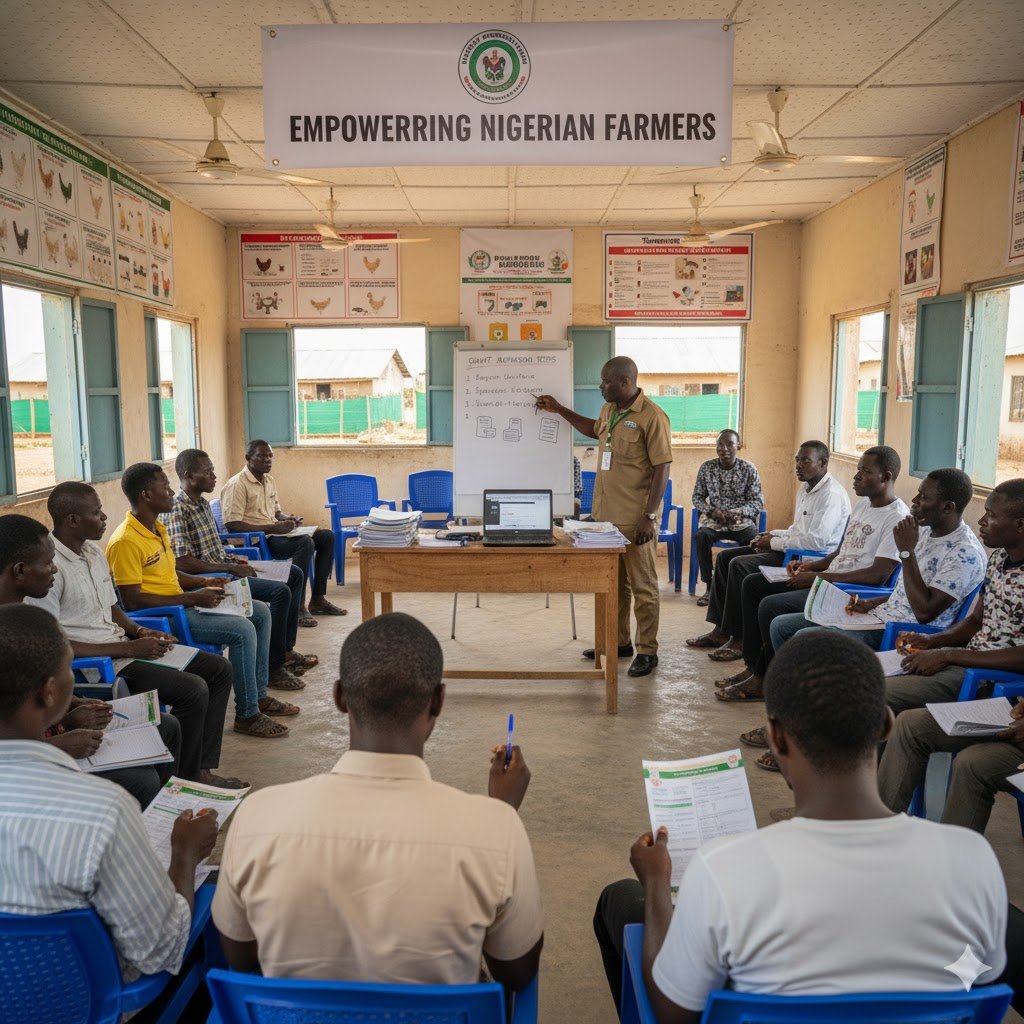
Grants are not the only way. Do not put all your eggs in one basket.
- Angel Investors: Rich individuals who invest in new businesses. This is for a much later stage.
- Agricultural Cooperatives: This is a powerful tool. Join a local poultry farmers’ cooperative. They often do “ajo” (group savings), buy feed in bulk (which is cheaper), and can get loans or grants as a group.
- Crowdfunding Platforms: Use a website (like Nigeria’s “NaijaFund”) to ask many people for small amounts of money.
- Partnerships: Find someone who has the money, and you bring the skill. You can write a legal agreement to share the profits.
- Agri-tech Platforms: Companies like ThriveAgric or Farmcrowdy have programs that “sponsor” farmers. They give you the chicks, feed, and medicine, and then you share the profit when the birds are sold. This is a great way to start with zero capital.
Frequently Asked Questions (FAQ)
Here are answers to the most common questions about agricultural grants in Nigeria 2025.
What grants are available for farmers in Nigeria?
There are many, including the TEF Grant, Mastercard Foundation grants, and various Federal Government programs from FMAFS, CBN, and NALDA, as well as state-level grants.
What is the purpose of the grant application for poultry farming?
The purpose is to convince the grant committee that your poultry farm is a good business idea, that you have a solid plan, and that you are the right person to run it.
How long does grant approval take?
It can take anywhere from 2 months to 6 months, or even longer. Be patient.
Can I apply for multiple grants simultaneously?
Yes! You should. Apply for every grant that you are eligible for. This increases your chances of winning one.
What happens if my application is rejected?
Do not give up. Ask for feedback if possible. Many people were rejected many times before they succeeded. Improve your business plan and apply again next time.
Do I need collateral for agricultural grants?
No. For most grants, you do not need collateral. This is the main difference between a grant and a loan.
How much grant money can I get for poultry farming?
Grant amounts vary significantly by program and applicant readiness:
Small grants (startup/nano businesses): ₦50,000 – ₦500,000 (NG-CARES, Presidential Conditional Grant Scheme)
Youth entrepreneur grants: ₦300,000 – ₦2 million (YEIDEP, F4F, SMEDAN)
Established business grants: ₦5 million – ₦50 million (NADF, ADP)
Large-scale commercial grants: ₦50 million – ₦5 billion (FAFIN, Mastercard Foundation)
Most first-time applicants realistically secure ₦500,000 – ₦2 million for poultry startups.
Can I get a grant if I already started my poultry farm?
Yes! Many grants support farm expansion, not just startups. Programs like NADF, YEIDEP, and the new National Smallholder Farmers Fund specifically target existing small farmers looking to scale up. In your application, show:
Your current farm size and output
Proof of past production (photos, sales records)
How the grant will help you expand (e.g., from 500 to 2,000 birds)
Your growth plan and increased job creation Established farms often have BETTER success rates than brand-new applicants because you’ve already proven you can manage poultry.
I heard about a $180 million agricultural fund. Can I apply?
This refers to the Nigeria Agricultural Development Fund (NADF), which has a total fund size of approximately $180 million (₦100 billion at 2025 rates). However, this is not one giant grant you apply for directly. Instead, NADF provides funding in tiers:
Small business loans/grants: ₦5M-₦50M
Commercial operations: Up to ₦50M+ You apply through the NADF portal (nadf.gov.ng) with your business plan and receive funding based on your proposal size and viability.
Are there grants specifically for women poultry farmers?
Yes. Many international organizations like USAID and private foundations have special funds for women in agriculture.
What is the difference between federal and state grants?
Federal grants are open to all Nigerians. State grants are only for residents of that specific state.
Can foreigners apply for Nigerian agricultural grants?
No. These grants are for Nigerian citizens.
Who qualifies for agricultural grants in Nigeria?
A Nigerian citizen, usually with a registered business (CAC) and a clear business plan for their farm.
What documents do I need to apply for agricultural grants?
The most important are: CAC certificate, a good business plan, your NIN, and your BVN.
What is the difference between an in-kind grant and a cash grant?
A cash grant gives you money. An in-kind grant gives you items (like chicks, feed, or equipment).
What is an M&E plan?
It stands for “Monitoring & Evaluation.” It’s just a simple plan for how you will track your success (e.g., “I will keep records of bird weight and feed costs”).
What about the ₦1 billion FUTA agricultural grant I heard about?
In 2025, the Federal University of Technology, Akure (FUTA) received ₦1 billion from the Federal Government for its own commercial farm operations under the Tertiary Education Trust Fund. This is not a grant program that individual farmers can apply to – it’s funding for the university itself. However, FUTA’s Teaching and Research Farm does support local farmers with improved crop varieties, so you might benefit indirectly by purchasing seeds/chicks from their farm.
Can I pay myself a salary from the grant?
Read the grant agreement! Some grants allow it (as a “management fee”), but most do not. The money is for the business, not your personal pocket. Be very careful with this.
Is it hard to apply for grants?
It takes time and effort. But this guide has given you all the steps. If you follow them, you can do it.
What about Noilers?
Are they good for grants? Many new farmers ask about noilers. They are a good dual-purpose bird. Read our broilers versus noilers comparison to decide which suits your grant-funded operation.
Conclusion
Getting a grant for your poultry farm is 100% possible. It is not a lottery. It is a competition. The person with the most prepared, most professional, and most honest application wins.
Your journey starts now. Do not wait for an application to open.
- Go and register your business with the CAC this week.
- Open a business bank account.
- Start writing your poultry farming business plan this weekend. Use the “Strong Budget” example.
- Organize your “Go-Bag” of documents.
By following the steps in this guide on how to get a grant for poultry farming in Nigeria, you are putting yourself ahead of 90% of other applicants.
The government and private foundations are looking for serious agricultural entrepreneurs to fund. As we move into 2026, the focus on food security will only get stronger. They are not just funding a farm; they are funding a solution. They are looking for you. Get ready to meet them.

Oladepo Babatunde is the founder of ChickenStarter.com. He is a backyard chicken keeper and educator who specializes in helping beginners raise healthy flocks, particularly in warm climates. His expertise comes from years of hands-on experience building coops, treating common chicken ailments, and solving flock management issues. His own happy hens are a testament to his methods, laying 25-30 eggs weekly.
